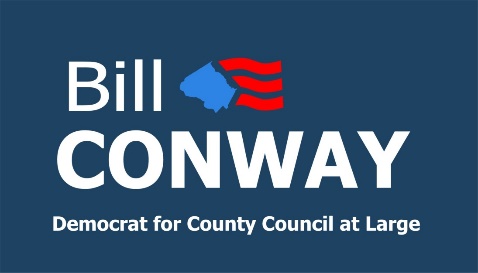By Adam Pagnucco.
The county’s Charter Review Commission is considering recommending a charter amendment that would abolish or reduce the number of the County Council’s at-large seats, which account for four of the council’s nine seats. One reason for this is that currently three of the four at-large seats are held by residents of Takoma Park, long regarded as the most left-wing jurisdiction in the State of Maryland. Over the years, your author has heard sporadic complaints that Takoma Park’s alleged dominance of the council has pushed the council to the left and/or directed excessive resources to Downcounty and the city.
The fact is that Takoma Park’s current holding of three seats is very disproportionate relative to its population (roughly 18,000 in a county of a million people). But it hasn’t always been that way. Below is the residence history of at-large Council Members since the current council structure was created in 1990.
At-Large Council Member Residency, 1990-2018
1990-1994
Bruce Adams: Bethesda
Gail Ewing: Potomac
Ike Leggett: Burtonsville
Mike Subin: Gaithersburg
1994-1998
Gail Ewing: Potomac
Ike Leggett: Burtonsville
Neal Potter: Chevy Chase
Mike Subin: Gaithersburg
1998-2002
Blair Ewing: Silver Spring
Ike Leggett: Burtonsville
Steve Silverman: Silver Spring
Mike Subin: Gaithersburg
2002-2006
Nancy Floreen: Garrett Park
George Leventhal: Takoma Park
Steve Silverman: Silver Spring
Mike Subin: Gaithersburg
2006-2010
Marc Elrich: Takoma Park
Nancy Floreen: Garrett Park
George Leventhal: Takoma Park
Duchy Trachtenberg: North Bethesda
2010-2014
Marc Elrich: Takoma Park
Nancy Floreen: Garrett Park
George Leventhal: Takoma Park
Hans Riemer: Silver Spring/Takoma Park
Note: Riemer moved from Silver Spring to Takoma Park in the middle of his first term.
2014-2018
Marc Elrich: Takoma Park
Nancy Floreen: Garrett Park
George Leventhal: Takoma Park
Hans Riemer: Takoma Park
At-large terms with a resident on the council, 1990-2018
Takoma Park: 8.5
Gaithersburg: 4
Garrett Park: 4
Silver Spring: 3.5
Burtonsville: 3
Potomac: 2
Bethesda: 1
Chevy Chase: 1
North Bethesda: 1
It’s also worth noting that over these seven terms, only one term saw a Takoma Park resident representing Council District 5 (Tom Perez in 2002-2006). The other elected District 5 Council Members – Derick Berlage, Valerie Ervin and Tom Hucker – have lived in Silver Spring.
Takoma Park’s dominance of the at-large seats began in earnest in 2006 and appears to be temporary. Council Members George Leventhal and Marc Elrich are term-limited and leaving the council. Council Member Hans Riemer will get one more term before he is out too. Of the current field of Democratic at-large candidates, your author knows of just one – former City Council Member Seth Grimes – who comes from Takoma Park and intends to run. A bigger issue is that most at-large members tend to come from Downcounty, but that’s natural considering that’s where most regular Democratic voters live.
There may be good reasons for going to an all-district council structure and your author does not have a strong opinion on that. But instituting a permanent, structural fix like reorganizing the council is not an appropriate remedy for dealing with a temporary issue like Takoma Park’s number of at-large seats. Proponents of reducing the at-large seats need a better argument.





